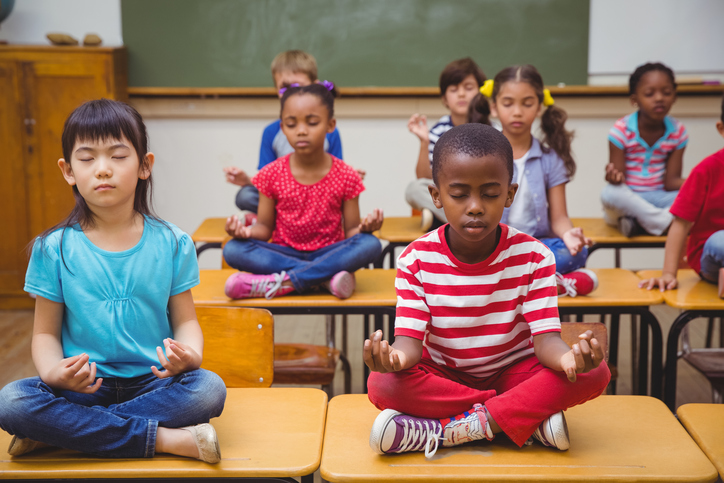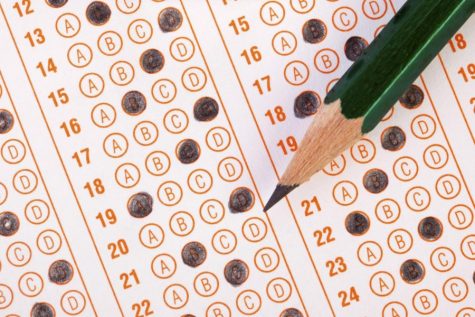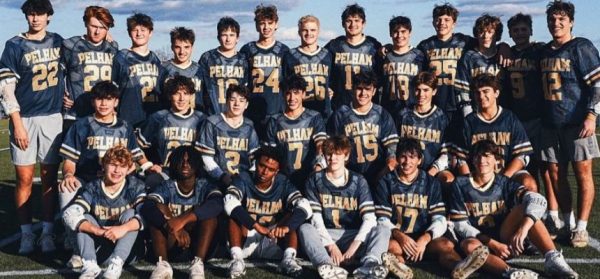Mindfulness doesn’t cut it for student mental health
I don’t deny that the mental health of students at PMHS is as bad as it is in high schools nationwide, if not worse. Everyday I see the effects that the education system in America has on students. And there’s no doubt in my mind that it is imperative for PMHS and other schools to take more steps to actively protect the mental health of its students. But the use of mindfulness training and exercises–especially during class time–is a blatant cop-out by the PUFSD. It has effectively no impact on the general mental health of students and ultimately wastes time and money while there are many more efficient options to help address these issues.
Under the current system, there are a few different ways in which your student may be learning about mindfulness in their classrooms. The first and most common way is during their mandatory health classes. Additionally, students in upper level language classes–generally levels 4 and up–also have discussions on mindfulness during class time.
The issue with the way our school is going about teaching students mindfulness isn’t with the practice itself. Rather, it is how they’re going about teaching it that is a problem, and whether or not their version of administering mindfulness exercises actually has any benefits to mental health. Students receiving mindfulness training in language classes received it about once a month for half of the year, approximately the same amount of time as a student receiving it in health class. But just how much of an impact does that training have? Mindfulness, according to a Harvard Health article published on HelpGuide, improves mental health, physical health, and general well being. I’m not denying that. The real question here is whether or not those same benefits are reaped when students are receiving this training only once a month.
The simple answer to that question is that they’re not. Doing mindfulness exercises in class might help calm the students in the short term, but do they actually have the major impact that consistent mindfulness routines do? Of course not. Putting in half the effort will not lead to the same results as giving it your all. So unless the school manages to regularly administer mindfulness sessions with their students, there will not be the impact the school hopes there will be.
Rather than following a half-baked mindfulness training plan, there is so much more the district can do to protect its students against mental ailments, some of them even easier than having a lesson every so often during class. Simply find one of dozens of links from trustworthy sources online which explain ways for teachers to identify those who might be suffering, and have the teachers stay alert for the signs. Instead of having mindfulness lessons, give lessons to the students on the signs of mental illnesses and tell them who to go to and where to go if they suspect someone they know is suffering. Teach students what to do if someone comes to them with a problem. Take steps to reduce the massive stress that the school’s levy on the students. If possible, providing something like psychological screenings for students would be a huge step in the right direction.
At the end of the day, it’s important to realize that with the stress that school causes mental illness comes hand in hand. The school needs to take responsibility for their role in this. Mindfulness training was a valiant effort, but without regularity, it simply lacks impact. There are better options.
Newport Academy reported that in 2016, nearly 3.1 million adolescents in America faced a major depressive episode. 2.2 million of those episodes resulted in major impairment. And yet, less than 600,000 received care from a trained health professional. PMHS needs to stop shirking its duty to protect its student’s mental health. It’s time to end the charade of mindfulness and take proactive action, before we face a tragedy.
Assistant Managing Editor and Sports Editor Nick Lieggi’s mother runs the PMS Mindfulness Club.
This article is part of a series on PMHS and Pelham Public Schools from a student perspective. Read the previous week’s article here. Next week, the series will be put on hold, but the week after it will return with a discussion of standardized tests.
Nick Lieggi is a freshman at Oxford College of Emory University and was a member of the PMHS class of 2020. He began his journalism career at the Pelham...













